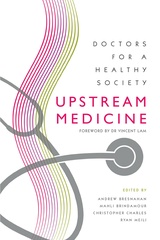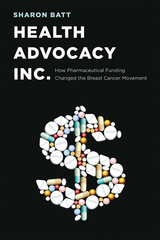
Medical professionals are expected to act in the interest of patients, the public, and the pursuit of medical knowledge. Their disinterested pursuit offers them credibility and authority. But what happens when doctors’ supposed impartiality comes under fire?
Medicine and Morality considers the ways in which moral and scientific norms in Canadian medicine have emerged and evolved over time. Critics of biomedicine tend to discuss conflict of interest as a contemporary phenomenon – namely in relation to the damaging influence of the pharmaceutical industry on medical practice and research. But Helen Kang examines three moments in the history of the medical profession in Canada, spanning more than 150 years, when doctors’ moral and scientific authority was questioned. Kang shows that, in these moments of crisis, the profession was compelled to re-examine its priorities, strategize in order to regain credibility, and redefine what it means to be a good doctor.
Medicine and Morality reveals that professional medicine defines integrity, objectivity, accountability, neutrality, and other ideals according to its social, political, historical, and economic struggles with the state, the media, and even the public. In other words, moral and scientific standards in medicine are determined in direct relation to, not in spite of, conflict of interest.
This book will be of interest to scholars and students in the history of medicine, medical sociology, medical anthropology, and social studies of science, as well as bioethicists, medical/health educators, physicians, and scientific/medical journalists.
Kang’s analysis illuminates our current anxiety about the proper place of health care in public life.
A revealing look at how professional morality and norms are always in flux and how the project of ‘professionalization’ is historically situated and ongoing. This long-overdue book takes a much-needed look at the pervasiveness of conflict of interest in science and medicine.
Kang incisively analyzes three Canadian historical cases to provide an engaging account of the complexity and context-specific nature of the construction of morality in medicine. Her work highlights the interplay of science, ethics, professional interests, and the social contract.
Medicine and Morality offers a valuable perspective on how medicine has to reconcile many conflicting ethical standards, concepts, and beliefs.
Introduction
1 Toward a Theory of Medical Disinterestedness
2 A Brotherhood of Scientific Gentlemen
3 Building Bridges, Making Amends
4 The Paradox of Medical Publishing
Conclusion
Notes; Selected Bibliography; Index












